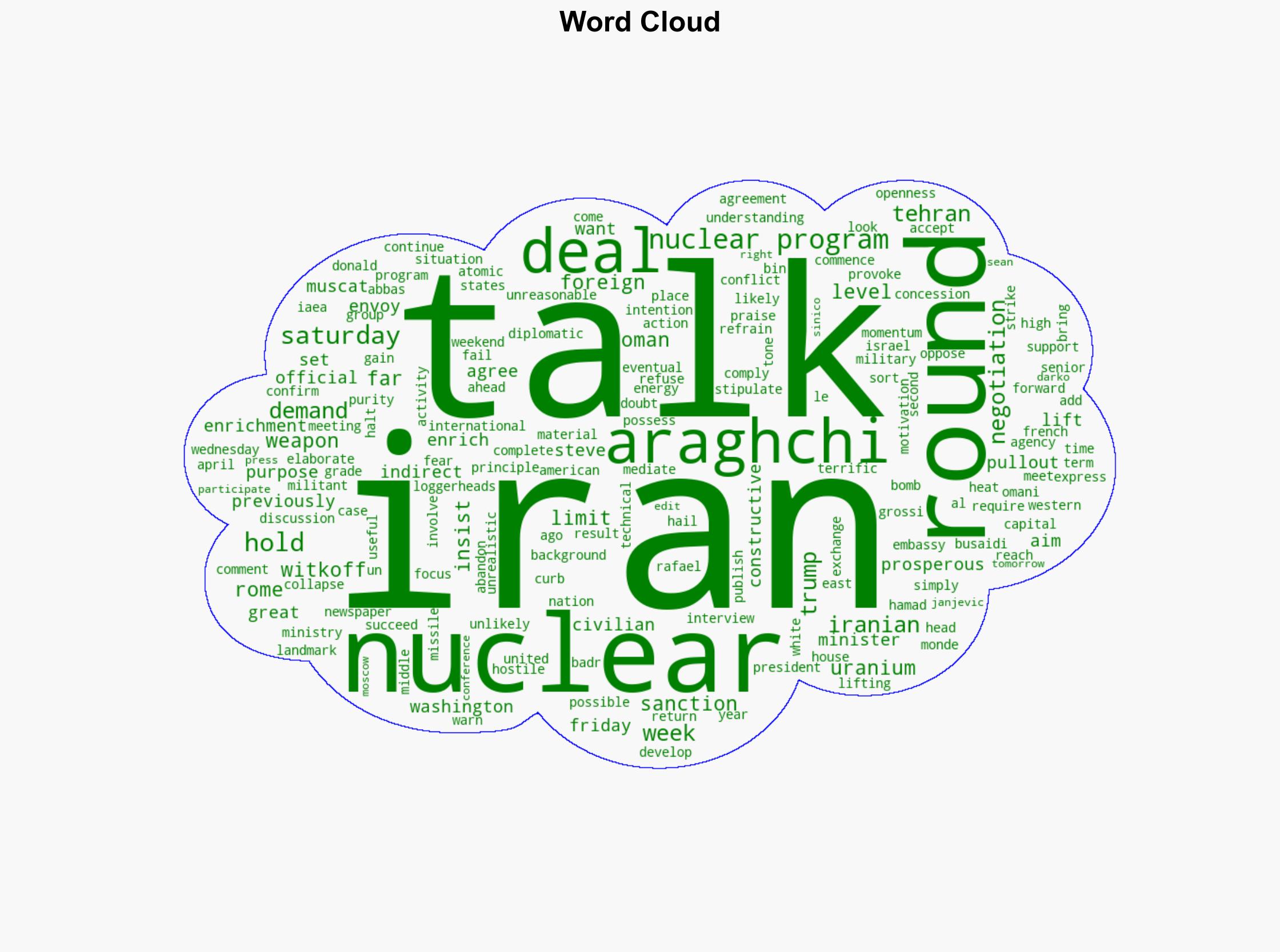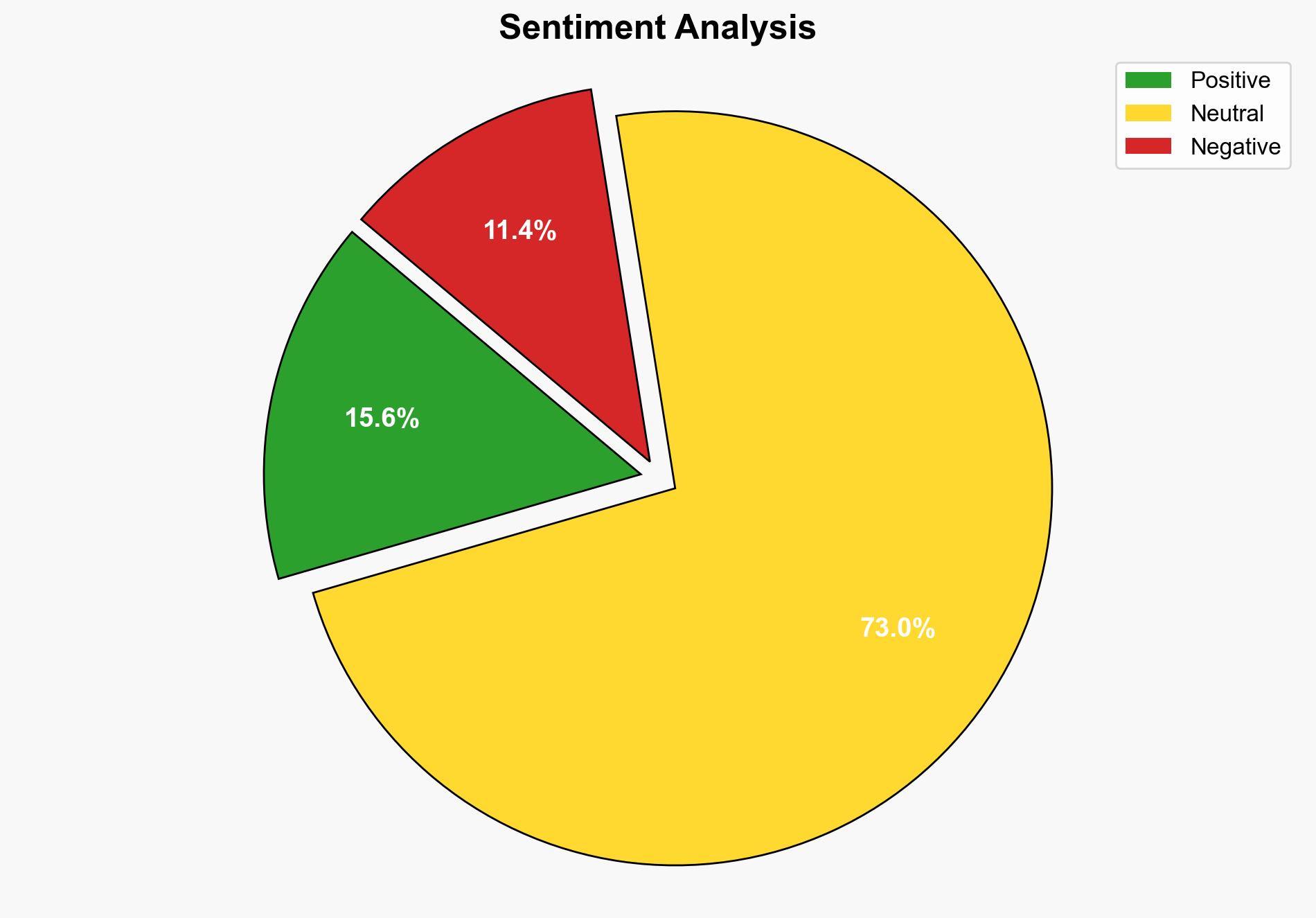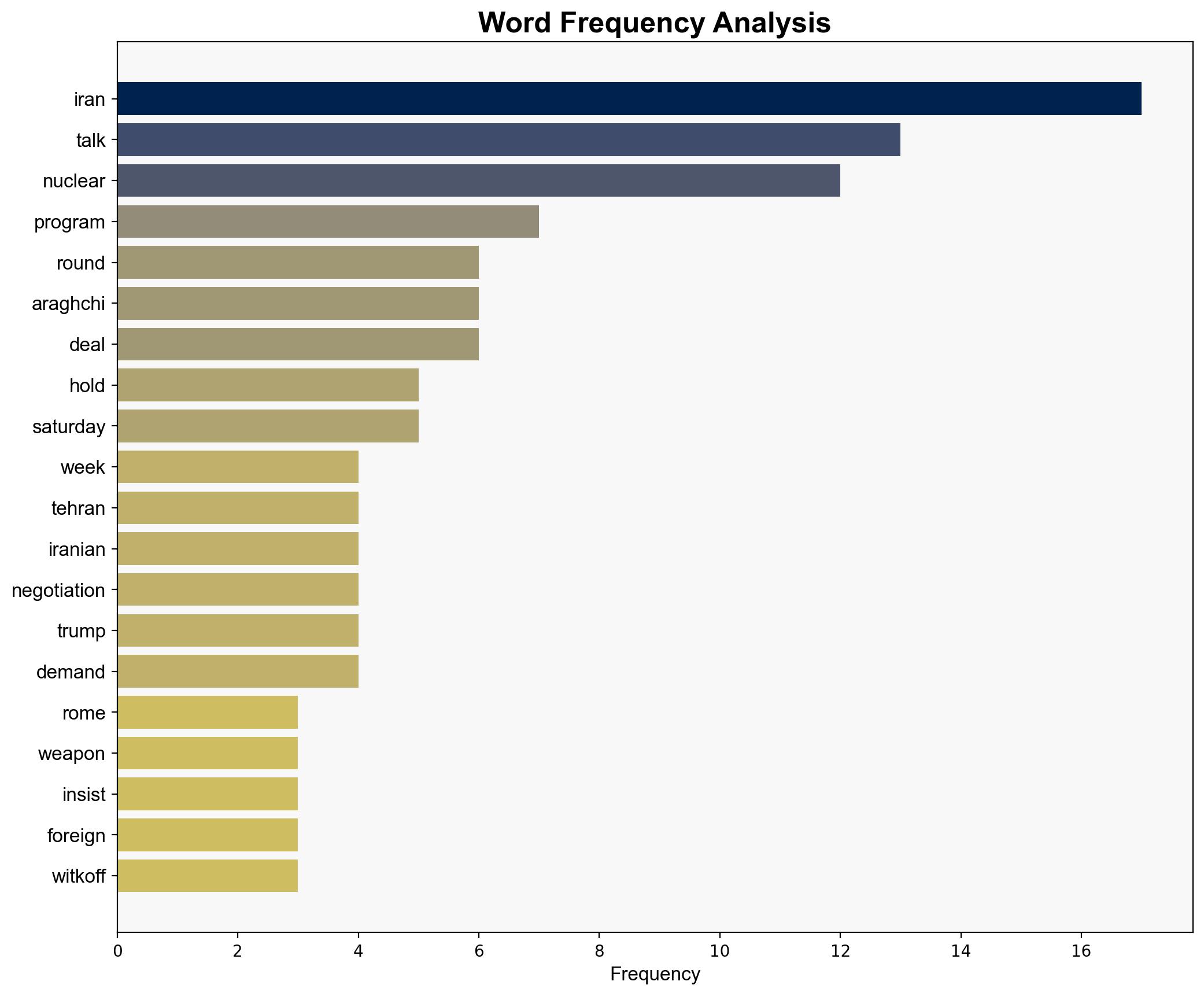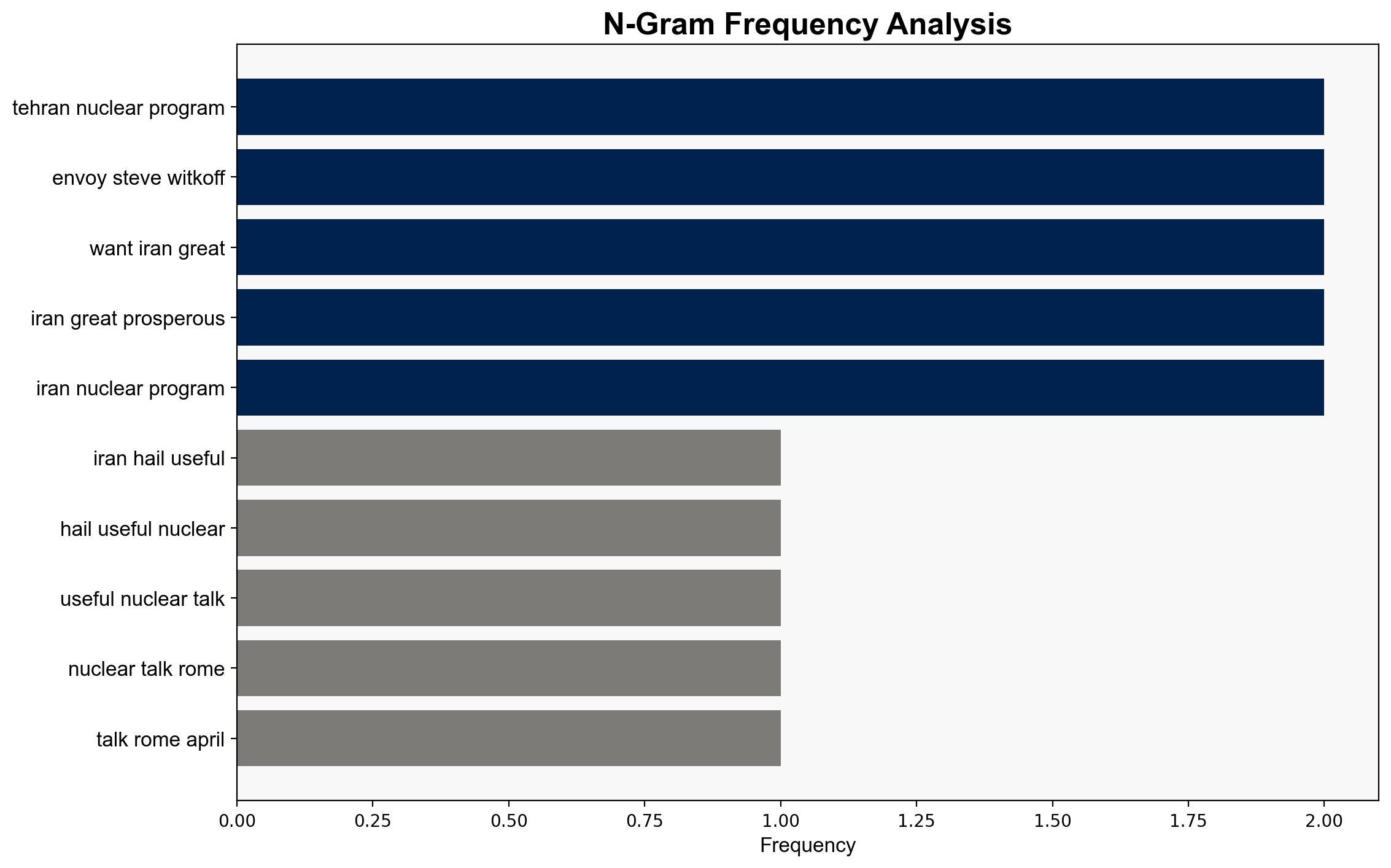US Iran start second round of nuclear talks in Rome – DW (English)
Published on: 2025-04-19
Intelligence Report: US Iran Start Second Round of Nuclear Talks in Rome – DW (English)
1. BLUF (Bottom Line Up Front)
The United States and Iran have commenced a second round of indirect nuclear talks in Rome, aiming to address concerns over Iran’s nuclear program. These discussions, mediated by Oman, are crucial as they occur amidst heightened tensions and previous US withdrawal from the nuclear deal. The talks are seen as constructive, with potential for progress if both sides can agree on realistic terms. Key recommendations include maintaining diplomatic engagement and preparing for potential escalation if talks fail.
2. Detailed Analysis
The following structured analytic techniques have been applied:
SWOT Analysis
Strengths: Diplomatic channels remain open, with Oman facilitating dialogue. Both parties show willingness to engage in discussions.
Weaknesses: Deep-seated mistrust and differing objectives, particularly regarding uranium enrichment levels and sanctions.
Opportunities: Potential to revive or renegotiate terms of the nuclear deal, reducing regional tensions.
Threats: Failure to reach an agreement could lead to increased sanctions or military actions, destabilizing the region further.
Cross-Impact Matrix
The outcome of these talks could significantly impact regional stability. A successful agreement may reduce tensions with neighboring countries and improve economic conditions through lifted sanctions. Conversely, failure could exacerbate regional conflicts, particularly involving Israel and Iran-backed groups.
Scenario Generation
Best-case scenario: A mutually agreeable deal is reached, leading to a phased lifting of sanctions and Iran’s compliance with nuclear restrictions.
Worst-case scenario: Talks collapse, leading to increased sanctions and potential military confrontations.
Most likely scenario: Incremental progress with continued negotiations, but significant challenges remain unresolved.
3. Implications and Strategic Risks
The continuation of talks indicates a diplomatic path forward, but the risk of escalation remains if negotiations stall. The economic impact of sanctions on Iran and potential military actions pose significant threats to regional and global stability. The political landscape could shift depending on the outcomes, affecting alliances and power dynamics in the Middle East.
4. Recommendations and Outlook
- Encourage sustained diplomatic efforts and engagement with regional allies to support the negotiation process.
- Prepare contingency plans for potential escalation, including economic and military responses.
- Monitor developments closely to adjust strategies in real-time, ensuring readiness for any shifts in the negotiation outcomes.
- Scenario-based projections suggest a cautious approach, balancing pressure with incentives to achieve a sustainable agreement.
5. Key Individuals and Entities
Abbas Araghchi, Steve Witkoff, Badr bin Hamad al Busaidi, Rafael Grossi




